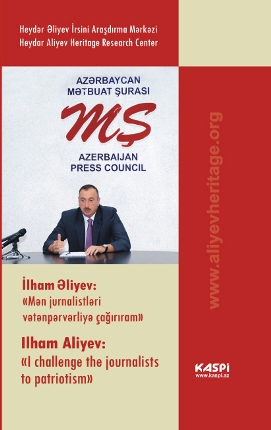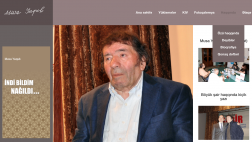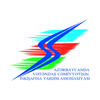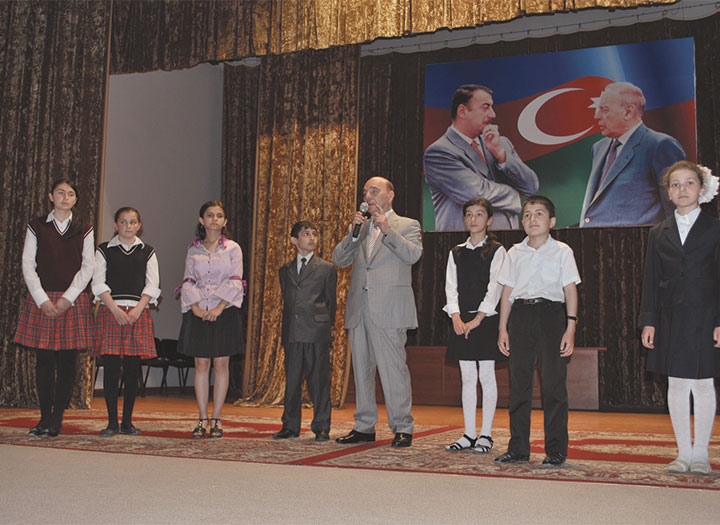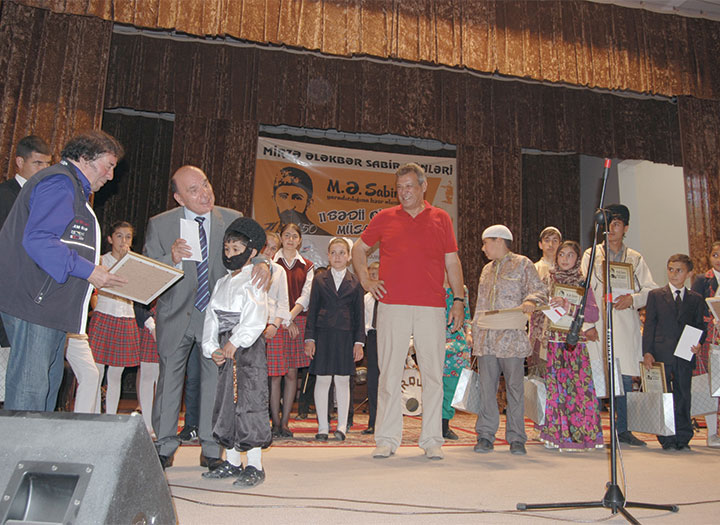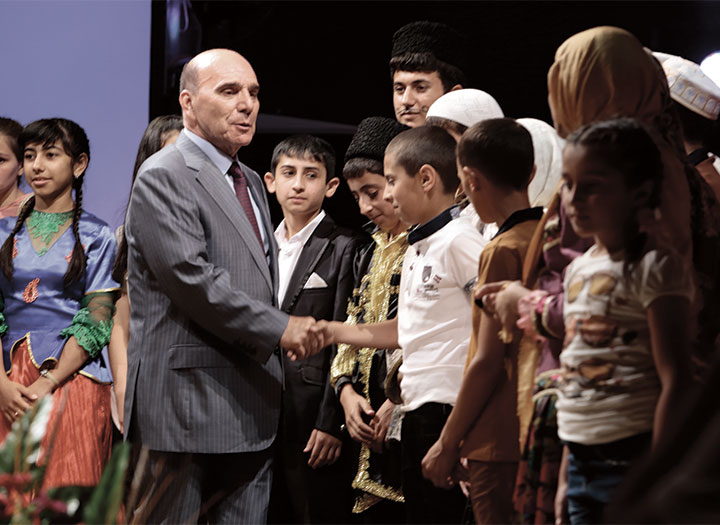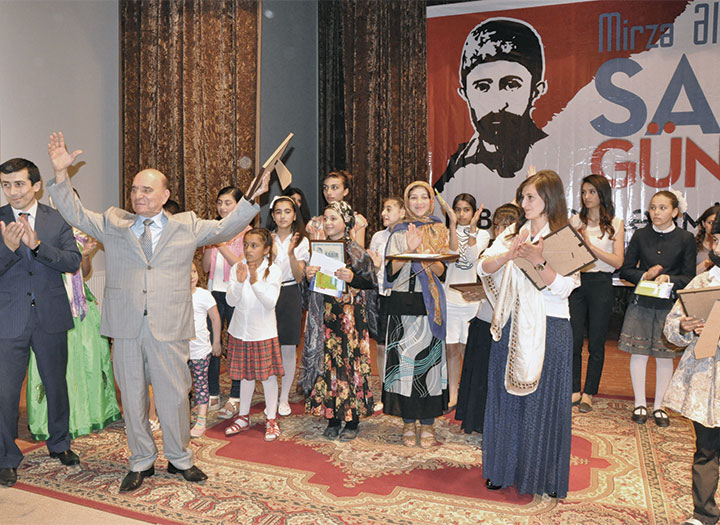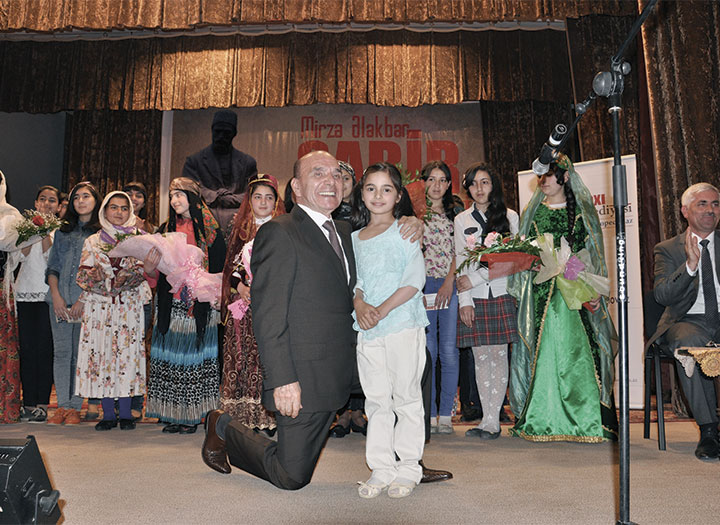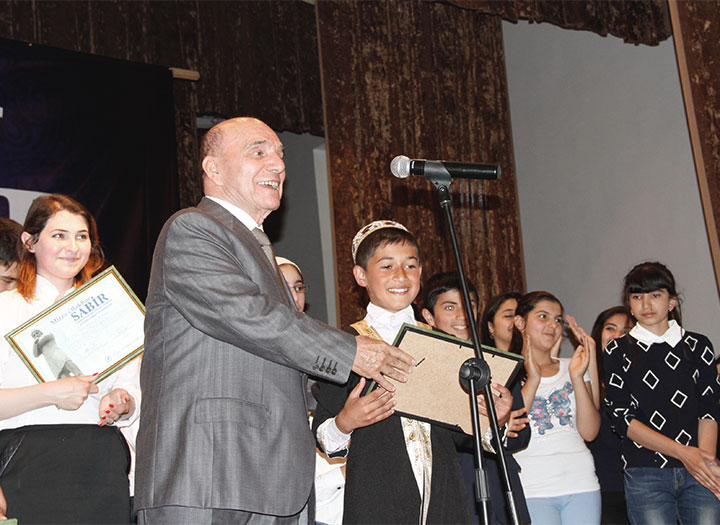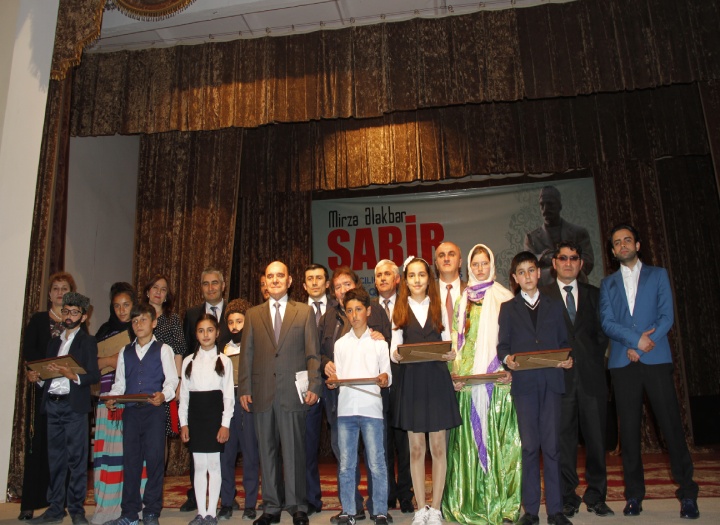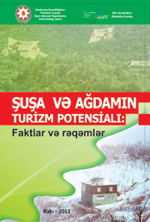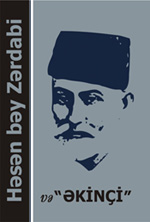

Comparative analyses of the laws of the Azerbaijan Republic and western countries on Mass media.
The activity of Mass media is regulated according to the corresponding laws in developed western countries as is done in the majority of the world countries. Some experts and Mass media state that press is free from any pressure in the USA. They ground on the regulations on freedom of speech and press stated on the First Amendment to the US Constitution. “The Congress can not pass any law restricting the freedoms of thought or speech,” the First Amendment states.
As it is seen, restrictions on freedoms of speech and press contradict principles of the First Amendment. However, sometimes court judgments prove these kinds of limits and existing of freedoms of speech and press at definite conditions in the USA.
Court judgment restricting freedom of press in the USA should correspond to the Constitution and may be applied to in only three following cases:
1. If the material publishing irreparably damages any inviolable rights;
2. If the first restrictions have no result;
3. If other measures restricting freedom of speech are less rational.
The US Department of Justice is recognized as concerning charge politics privilege in their advices. Besides that, over a half of the states have “the protective laws” passed. Those laws state permission not to disclose the source of information. Courts of other states consider that, the same privilege was meant in general law and in the Constitution of the corresponding states.
Journalists are rarely arrested in America for refusing to disclose the source of information. Courts rarely demand journalist to disclose the source of information and rarely arrest them in connection with the report of information.
Media is of large influence in the USA and sometimes fulfills the function of supervision over administration. Nevertheless, fulfillment of this function depends on the public position and political atmosphere. Media takes an active part to create that political atmosphere.
There is a common law on freedoms of speech and press in European countries except Great Britain. Freedom of speech is realized as one of the natural Human Rights in this country. At the same time, it is considered possible to restrict freedom of speech in some way by some standard acts application.
In the first part of Article 10 of the European Convention on Human Rights is stated that, “Every person has the right to express his/her thought freely. This right includes the right to have one’s thought, to get and spread information and ideas neither interfered with state agencies nor dependent on any restrictions”. However, definite restrictions were meant for the latter in the second part of the same Article.
There is not a written constitution in Great Britain; thus, substantial guarantees to freedom of speech are not given here. There are not perfect laws determining rights of media and restrictions on freedom of press in there. Regulations on free thought are not positive in the existing legislation. There are many restrictions on free thought determined either by parliament or by the president in the law. Freedoms of speech and press exist only outside of those restrictions.
Joining of Austria to the European Convention on Human Rights in 1958 and addition of terms of the Convention completely to the Constitution in 1964 appears as a suitable condition to protect free speech and press like other fundamental freedoms. “Everyone has the right to express his/her thought orally, to publish in a written form or draw its picture freely under restriction stated in the law. Press can never be the object of censorship and the system of license. Administrative post prohibitions can not concern the materials published in the country,” said in Article 13 of this state Constitution.
Freedom of press was ensured in Article 100 of the Constitution passed in 1814 in Norway. “Press must be free. In spite of the content nobody may be punished for any published writing, on condition that, if the same writing doesn’t incite to disobey the law, to disrespect religion, morals or constitution deliberately or doesn’t incite to show resistance to the rules determined by them, or to raise false or insulting charge against somebody or doesn’t incite others to this. Everybody has to freely express his/her thought about State administration or about other persons”.
Freedom of thought, especially in cases on defamation, was restricted from time to time according to some laws and interpretation of courts in Norway. Facts prove that freedom of information has been poorly ensured in the Norway legislation. Even the city court of Tormoso noted in one of its judgments that, legal protection of freedom of information did not exist in this country.
In France expression of thought and freedom to spread information were represented in Declaration on Human and Civil Rights, Article 11 from1789. Later, theses of that article were included into the preamble of the Constitution of 1958. “Free expression of thought and ideas is one of the most important freedoms of a human-being. Everyone can speak, write and publish freely. But the person abusing this regulation is responsible concerning the matters stated in the law”, said in the preamble.
Freedoms of press, information and thought were ensured according to the following two items of Article 5 of the Constitution adopted in 1949 in Germany:
1) Everyone has the right to express his/her thought orally, in a written form or draw its picture and spread, generally to get information from attainable sources freely. Freedom of press and the freedom to spread information by radio broadcast and by cine-film are ensured. These are not to be censored.
2) These rights may be restricted according to the rules determined in general legislation, conditions put in the laws to protect youth and with the right of inviolability of a person.
The Law On Freedom of Press was passed in Sweden in 1766. The present law accepted in 1949 grounds on the Law On press adopted in 1812. The Constitution of Sweden consists of three parts: the Government Document of 1974, the Law On Freedom of Press, 1949 and the Law On Freedom of Speech from 1991. Theses of these documents ensure all the citizenry of freedom of thought, freedom to get and share information. Only parliament is authorized to make changes to the Law On Freedom of Press that forms part of the theses of the Constitution. Electors may influence with the proposed changes acceptance in this country.
Article 1 of the second chapter of the Government Document ensures all the citizenry of freedom to express their thought, to get and give information within the following conditions:
1. Freedom of thought is freedom to publish information and to express ideas, opinions and feelings either orally or in a written form, by drawing a picture, or by any other way.
2. Freedom of information is freedom on getting information and, on the other hand, on being acquainted with the thoughts of others.
There is a post of Ombudsman on Press in Sweden, which was established in 1969. A special Committee consisting of commissioners of parliament, representatives of media-club and the Association of Lawyers of Sweden appoints to this post. Every citizen may send a certain newspaper material to the Ombudsman on Press to claim that the Journalists’ ethics was violated. Every year 400-500 complaints are studied in Sweden.
Freedoms of speech and press are protected according to Articles 20.1(a) and 20.1(d) of the Constitution from 1978 in Spain.
“The following rights should be recognized and protected:
a) The right to express and spread thoughts, ideas and opinions orally or in a written form or in other ways freely;
b) The right to get exact information and to spread it by any type of transmission. This right, implying profession conscience and profession secrecy should be regulated by the law.
3. Application of this right cannot be restricted within application of any initial censorship. There are theses in the other part of the same Article of the Constitution which applies restrictions in spite of the above stated theses:
4. These freedoms may be restricted by the laws regulations which are protected in this part, particularly the right to protect honor and dignity, the right to control usage of somebody’s image and the conditions which imply respect to protect youth and children”.
As it is seen, there are articles restricting freedoms of speech and press side by side with those ones ensuring the latter in the laws of developed western countries. Western and Azerbaijani legislation are rather alike concerning this feature. However, implementations of our laws are not at the same level with the laws of the western countries. Look through the analogical laws of Azerbaijan in order to obviously see this similarity.
Freedoms of speech and press are ensured with the Constitution, “On freedom of information” (9th of September, 1998), “On Mass Media” (8th of February, 2000), “On broadcast of public television and radio” (28th of September, 2004), “On getting information” (30th of September, 2005) and with other Laws. Decrees of the President of the Azerbaijan Republic: “On additional measures to ensure the freedoms of speech, thought and information in the Azerbaijan Republic”, “On increase of state care over Mass Media”, “On the 125th anniversary of the National Press media of Azerbaijan” (27th March, 2000), “On celebrating 130th anniversary of the National Press media of Azerbaijan” (2005); regulations “On the National Press, TV and Radio, and the Internet Council of the Azerbaijan Republic” and other documents directly contribute to ensuring freedoms of speech and press in the country. State trust by for ensuring periodicity of newspapers in recent years, increasing cooperation with the Council of Press which is very important in self-regulation, setting up of the National TV and Radio Council, activation of Public Television and Radio became possible after these laws were passed.
Freedoms of speech and press are ensured in the Constitution of the Azerbaijan Republic in the following Articles:
Article 47. Freedom of thought and speech
I. Everyone has the freedom of thought and speech.
II. Nobody may be obliged to express his/her thought and belief or renounce his/her thought and belief.
III. Propaganda and agitation arousing racial, national, religious, social hostility and enmity are banned.
Article 50. Freedom of information
I. Everyone has the legal right to search for, to get, to pass and to make publish the information he/she wants.
II. Ensured freedom of mass information. State censorship is forbidden in mass media, as well as it is in press.
“On getting information” (30th of September, 2005). Freedom of getting information and matters that didn’t concern the Law were represented in the Law.
Article 2. Freedom of getting information
2.1. Getting information is free in the Azerbaijan Republic.
2.2. Everyone has the right to apply to the holder of information directly or by his/her representative, to select type of information and the way to get it.
2.3. Everyone applying to the holder of information should:
2.3.1. Learn, if the holder of information has the information he/she needs, if not to get subsidiary information to get it;
2.3.2. If the holder of information has the information which is asked, he/she has the right to give it freely, without obstacles and with equal conditions for everyone.
2.4. Physical people have the right to being acquainted with the documentary information about themselves without obstacles, to get it, to demand to make information more exact, to learn who uses the information and what the purpose is.
2.5. The holders of information are allowed to use documentary information for other purposes according to the demands of this Law, at the same time to make reproduction of the information for commercial aims, it should be based on the initial source.
“On Freedom of Information” (9th of September, 1998)
“Everyone has the right to search for, to get, to pass, and to prepare and publish the information he/she needs according to Article 50 of the Constitution of the Azerbaijan Republic” is stated in the Article1 of the Law.
“On Mass Media” (8th of February, 2000) In Article 1of the Law “On Freedom of Mass Information” is stated:
“Mass information is free in the Azerbaijan Republic.
The freedom of mass information is the right to search for, to get, to pass, and to prepare information legally and ensured by state”.
“It is banned to censorship Mass Media as well as to establish and to finance special state agencies or posts for this purpose” is stated in Article 7 “Inadmissibility of censorship”.
Restrictions for freedoms of speech and press are determined in the laws in Azerbaijan as in all the countries. “On State Secret” (15th of November, 1996), “On Information, Getting Information and Protecting Information” (19th of June, 1998), “On Freedom of Information” (9th of September, 1998), “On Mass Media” (8th of February, 2000), “On National Security” (29th of June, 2004) and other laws “On Practice of Applying Legislation to Protect one’s Honor and Dignity by courts” are in the Resolution of the Plenum of Supreme Court of the Azerbaijan Republic.
In Article 2 of the law “On Freedom of Information” (9th of September, 1998) is stated that, “Realization of Freedom of Information shouldn’t be a reason for breaching the rights and interests of physical and legal people.
Restriction of freedom of information is possible only in cases stated in the Constitution of the Azerbaijan Republic”.
There are articles in the law “On Mass Media” (8th of February, 2000) forbidding to abuse freedoms of speech and press side by side with the articles ensuring them. Article10 of the law serves to prevent cases of abuse. “It is not permitted to use mass media for spreading secrets protected by the legislation of the Azerbaijan Republic, to overthrow the existing constitutional government by violence, to attempt at the integrity of state, to propagate war, violence and cruelty, national, racial, social hostility or intolerance, to publish rumor, lie and preconceived writings which humiliate citizen’s honor and dignity, pornographic materials, to slander, or to commit other illegal actions” is stated in that Article.
In Article 30.1 of the law “On State secret” is stated:
“Officials and citizens, who violate legislation of the Azerbaijan Republic on State Secret, are responsible according to the legislation which is in force”.
In the law “On National Security” (29th of June, 2004) the major national interests in the field of information are certainly stated:
6.6. The major national interests of the Azerbaijan Republic in the field of information are the following:
6.6.1. To ensure citizen’s constitutional rights: as to get, pass, make and spread information legally;
6.6.2. To protect and develop sources of information;
6.6.3. To form informational space and ensure its protection;
6.6.4. To enter the system of the world communication and information.
6.8. Major national interests of the Azerbaijan Republic in the field of science, culture and morality are to protect cultural-historical heritage and spiritual values, to enrich with public values, to develop the language, senses of self-cognize and national pride, intellectual potential, to use scientific potential efficiently and raise it.
In the following articles of the Law “On getting information” (30th of September, 2005) there are spheres not concerned by this law exactly:
4.2. This Law doesn’t concern the following:
4.2.1. The information defined as a state-secret;
4.2.2. Ensuring the work with archive materials according to the Law of the Azerbaijan Republic “On fund of National Archives”;
4.2.3. Proposals, applications and complaints regulated according to the Law of the Azerbaijan Republic “On the rules of hearing appeals”;
4.2.4. Restrictions defined in international agreements.
As citizens do not conform to the rules, and sometimes they do not know the laws; all that results in some problems. The following examples prove the above stated:
– In constructive activity of a very few part of three thousand MM officially registered in Azerbaijan;
– Increase of democratic freedoms abusing as well as the number of “racketing” newspapers. (70 percents of more than 950 letters addressed directly to the Press Council are on “racketing”. The Council determined about 300 MM till present and included them into the “black list””);
– After abolishing of problems concerning registration of a press agency, some people with no relation to journalism collect ten to fifteen, sometimes more MM;
– Making media politicized and its hard economic condition stimulating it; About 40 people have become refuges in abroad at present as journalists, but a very few part of them have connection with press;
– Weakness of an advertisement market; (Initial counting proves, advertisements cost 200 million manats are to be given to written MM in a year. However, advertisements even of 20 million manats are not.)
Citizens, including members of media should learn laws on freedoms of speech and press thoroughly and approach the theses with respect to removing the existing problems.
Conclusion
2678 mass media: 41 televisions and radios, 28 information agencies have been registered till this September in result of implementation of the existing legislation on mass media in the Azerbaijan Republic. Public TV in Azerbaijan was launched in August 30, 2005.
Only 15 percents of newspapers and journals were set up by governmental structures. More than 65 percents of newspapers belong to the oppositional political and public organizations, private structures and legal persons.
Press services of different ministries and other state agencies are responsible for giving information to people. Besides it, the law “On getting information” stating that everybody can get information freely, without obstacles and with equal conditions, puts great obligation not only onto the governmental bodies and organizations connected but also onto all the legal persons in order to make the journalists’ work easier in getting information.
No restriction for ethnic and religious minority to benefit MM are observed. Newspapers in the language of ethnic minorities are published in the country or brought from abroad.
Important legislative measures were taken concerning TV and Radio broadcasts. The Law “On TV and Radio broadcast” passed in June 2002 and came into force in October of the same year. The President of the Azerbaijan Republic signed a decree on October 5, 2002, on establishing the Council of National TV and Radio Broadcast corresponding to the standards of the European Council.
The Council of National TV and Radio Broadcast was established in January, 2003.
The next important step in the direction of ensuring freedoms of speech and information was the establishing of Press Council at the first congress of the Azerbaijani journalists on March 15, 2003. The main function of an independent agency – Press Council is to abolish conflicts between MM and individuals, at the same time between MM and private companies until disputes at court. The Council realizes newspapers monitoring and has elaborated theses of the code on journalists’ ethic.
Public-political and economic development of the country in the sphere of media as well as in other spheres, demands to continue reforming, to make the laws more perfect. Development of this sphere, which plays an important role in the life of society, is actual again as it was before. The Azerbaijan Republic continues cooperating with the international organizations at present as it did before.
